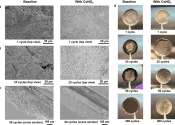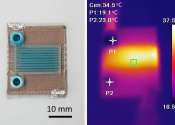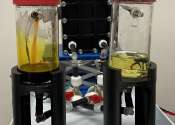Electrolyte additive increases charging rate of lithium metal batteries
On a mission to build better electric vehicle batteries, chemists at the U.S. Department of Energy's (DOE) Brookhaven National Laboratory have used an electrolyte additive to improve the functionality of energy-dense lithium ...
Jan 26, 2024
0
80









